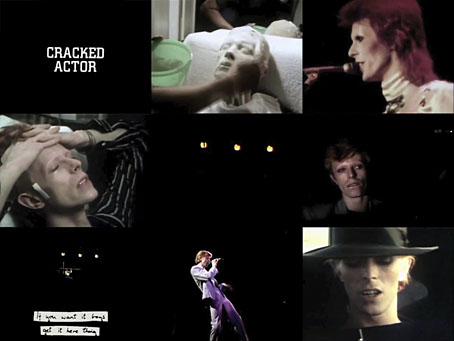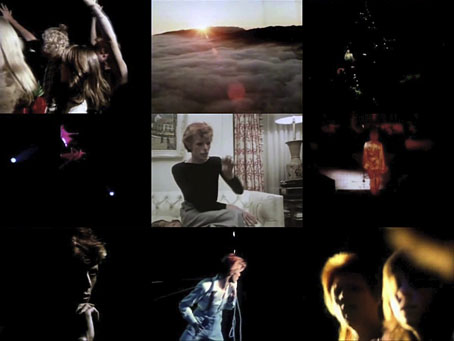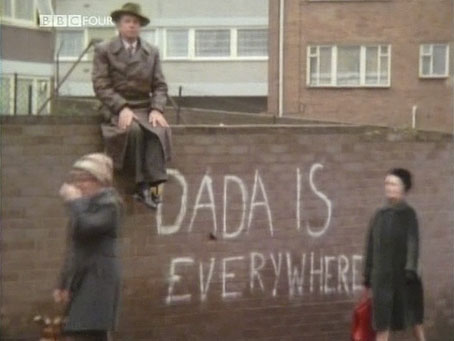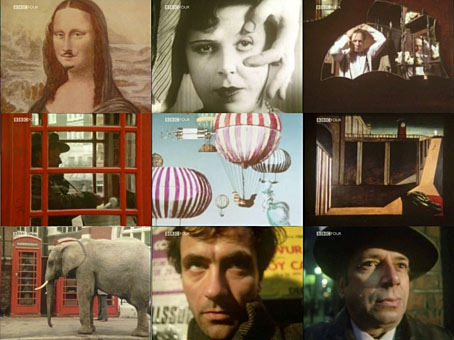This is one of those TV documentaries that it’s tempting to think everyone must have seen by now, but if it’s over-familiar to me it’s undoubtedly new to others. Cracked Actor: A film about David Bowie was broadcast by the BBC in their Omnibus arts strand in January 1975. Director Alan Yentob followed David Bowie around the US during the Diamond Dogs tour, and while it’s good to see some of the numbers from that album being performed live, I’ve always found it odd that Bowie’s stage persona is that of the Young Americans album, all big hair and padded shoulders; it’s a look that doesn’t work with Diamond Dogs‘ theme of dystopian futurism. Despite Yentob’s directorial coup this was one of many BBC documentaries that were screened once then not shown again for a long time, so that viewers such as myself who saw the original broadcast would be left to reminisce about memorable moments.
The most significant moment for me was Bowie demonstrating his own application of the cut-up method as he applied it to lyric writing, a sequence that was not only my first exposure to William Burroughs’ writing techniques but also my first introduction to Burroughs’ and Gysin’s names. Subsequent viewings confirmed that Bowie was as drug-addled as people claimed at the time (confirmed by the man himself in later years), especially in the limousine scenes which prefigure those in The Man Who Fell To Earth.
The amount of music in this film attracts the attentions of the YouTube copyright police so the upload linked here may not be around for long. Watch it while you can.
Previously on { feuilleton }
• Strange fascination




